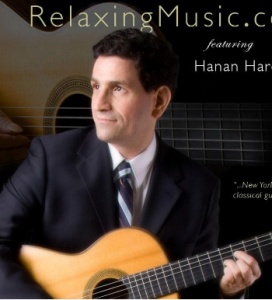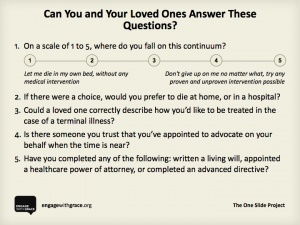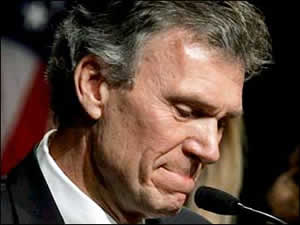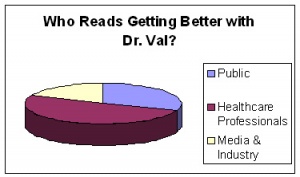November 26th, 2008 by Dr. Val Jones in Announcements
Tags: Anti-anxiety Music, Artist, Clasical Guitar, Dr. Val Jones, Hanan Harchol, Lullaby, Relaxingmusic.com
No Comments »
I have an artist friend in New York City who is incredibly talented. He (Hanan Harchol) is a professional animator and illustrator with a Masters from the Art Institute of Chicago. Of course (in these economic times especially) making a living as an artist can be a real challenge. Hanan keeps himself afloat by working evenings as a strolling classical guitarist in upscale Manhattan restaurants. I’ve attended several of his shows, and he is super talented. This holiday season he made a compilation CD of lullabies and I highly recommend it.
Supporting my friend does a few things: 1) his CD is an affordable holiday gift for your friends and family 2) his CD is one of the few gifts I can think of that may reduce the anxiety felt by all of us in these challenging economic and political times and 3) your support helps a truly gifted artist continue to do what he does.
So take a listen to his work here – I’m sure you’ll agree, it beats anti-anxiety meds hands down.

November 26th, 2008 by Dr. Val Jones in Announcements
Tags: Dr. Val Jones, End Of Life Care, Engage With Grace, Living Will, Palliative Care, Power of Attorney
4 Comments »
Matthew Holt and Paul Levy have encouraged medical bloggers to join together around a common goal for Thanksgiving: to talk to our loved ones about end-of-life preferences. Now I know this may seem a bit morbid at first blush – but it is really important that each of us create a living will and durable power of attorney document. There’s no better time to discuss this than a holiday where we all get together with our families to enjoy one anothers’ company and our gratitude for what we have.
I used the Suze Orman site templates to create mine (I received a free CD Rom). It was really easy to do. Living Wills provide guidelines about your wishes for care in the event that you are unable to express your opinions. The Durable Power of Attorney document makes it clear whom you’d like to “call the shots” on your care if you’re unable to do so for yourself.
If you haven’t done so already, why not consider the following three steps over Thanksgiving?
1. Discuss the “Engage with Grace” slide with your loved ones.
2. Fill out living will and power of attorney documents at Suze’s site (or find another site online that has a good template that you can use to express your wishes).
3. Get those documents affirmed by a notary public and send a copy to your doctor to add them to your medical record.
Every person at every age needs to have an end-of-life care plan. Why not join with thousands of blog readers in settling this matter for yourself and your loved ones this Thanksgiving?

November 19th, 2008 by Dr. Val Jones in Announcements, Opinion
Tags: Administration, Democrat, Government, Health and Human Services, Health Policy, Healthcare reform, HHS, Obama, Secretary, Tom Daschle
4 Comments »

Tom Daschle - Photo Credit: CBS News
I’ve had my eye on Tom Daschle for many months – and attended a healthcare conference in June ’08 in which he was the keynote. I blogged about his ideas previously, but thought it would be valuable to repost them here (h/t to The Healthcare Blog):
Tom Daschle, former Senate Majority Leader from South Dakota, was the keynote speaker at the Fighting Chronic Disease: The Missing Link in Health Reform conference here in Washington, DC. His analysis of the healthcare crisis is this:
US Healthcare has three major problems: 1) Cost containment. We spend $8000/capita – 40% more than the next most expensive country in the world (Switzerland). Last year businesses spent more on healthcare than they made in profits. General motors spends more on healthcare than they do on steel.
2) Quality control. The US system cannot integrate and create the kind of efficiencies necessary. The WHO has listed us as 35 in overall health outcomes. Some people ask, “If we have a quality problem, why do kings and queens come to the US for their healthcare?” They come to the best places like the Mayo Clinic, the Cleveland Clinic, or Johns Hopkins. They don’t go to rural South Dakota. We have islands of excellence in a sea of mediocrity.
3) Access. People are unable to get insurance if they have a pre-existing condition. 47 million people don’t have health insurance. We have a primary care shortage, and hospitals turning away patients because they’re full.
His solutions are these:
- Universal coverage. If we don’t have universal coverage we can’t possibly deal with the universal problems that we have in our country.
- Cost shifting is not cost savings. By excluding people from the system we’re driving costs up for taxpayers – about $1500/person/year.
- We must recognize the importance of continuity of care and the need for a medical home. Chronic care management can only occur if we coordinate the care from the beginning, and not delegating the responsibility of care to the Medicare system when the patient reaches the age of 65.
- We must focus on wellness and prevention. Every dollar spent on water fluoridation saves 38 dollars in dental costs. Providing mammograms every two years to all women ages 50-69 costs only $9000 for every life year saved.
- Lack of transparency is a devastating aspect of our healthcare system. We can’t fix a system that we don’t understand.
- Best practices – we need to adopt them.
- We need electronic medical records. We’re in 21st century operating rooms with 19th century administrative rooms. We use too much paper – we should be digital.
- We have to pool resources to bring down costs.
- We need to enforce the Stark laws and make sure that proprietary medicine is kept in check.
- We rely too much on doctors and not enough on nurse practitioners, pharmacists, and physician assistants. They could be used to address the primary care shortage that we have today.
- We have to change our infrastructure. Congress isn’t capable of dealing with the complexity of the decision-making in healthcare. We need a decision-making authority, a federal health board, that has the political autonomy and expertise and statutory ability to make the tough decisions on healthcare on a regular basis. Having this infrastructure in place would allow us the opportunity to integrate public and private mechanisms within our healthcare system in a far more efficient way.
What do I think of this? First of all, I agree with much of what Tom said (especially points 2-7) and I respect his opinions. However, I was also very interested in Nancy Johnson’s retort (she is a recently retired republican congresswoman from Connecticut).
Nancy essentially said that any attempt at universal coverage will fail if we don’t address the infrastructure problem first. So while she agrees in principle with Tom Daschle’s aspirations and ideals, she believes that if we don’t have a streamlined IT infrastructure for our healthcare system in place FIRST, there’s not much benefit in having universal coverage.
As I’ve always said, “equal access to nothing is nothing.”
I also think of it this way: imagine you own a theme park like Disney World and you have thousands of people clamoring at the gates to enter the park. One option is to remove the gates (e.g. universal coverage) to solve consumer demand. Another option is to design the park for maximal crowd flow, to figure out how to stagger entry to various rides, and to provide multiple options for people while they’re waiting – and then invite people to enter in an orderly fashion.
Obviously, this is not a perfect analogy – but my opinion is that until we streamline healthcare (primarily through IT solutions), we’ll continue to be victims of painful inefficiencies that waste everyone’s time. It’s as if our theme park has no gates, no maps, no redirection of crowd flow, no velvet-roped queues, and the people who get on the rides first are not the ones who’ve been waiting the longest, but the “VIPs” with good insurance or cash in the bank. It’s chaotic and unfair.
Quite frankly, I think we could learn a lot from Disney World – and I hope and pray that next year’s healthcare solution is not simply ”remove the gates.”
What do you think?
November 17th, 2008 by Dr. Val Jones in Announcements
Tags: Blogging, CHPA, Dr. Roy Poses, Dr. Val Jones, Edelman, Health 2.0, Matthew Holt, Narcotics, New Media Summit, Oxycontin, Pharmaceuticals, Primary Care
4 Comments »
I was a panelist at Edelman’s CHPA New Media Summit today in New Brunswick, NJ. Matthew Holt (of the Healthcare Blog and Health 2.0) was the keynote speaker, and I participated on a panel discussion with Dr. Roy Poses. It was exciting to meet Roy in person for the first time, as I’ve been following his policy blog for some time.
Matthew presented a very rosy picture of Health 2.0 (consumer-driven healthcare), more or less suggesting that it could provide a large part of the solution to our current healthcare crisis. I countered with a more cautious view, explaining that expert engagement would be critical to Health 2.0’s success.
Matthew argued that sites like Patients Like Me were enabling patients “to do their own clinical trials online,” and that this was opening a whole new avenue for research. Dr. Poses and I were fairly concerned about this suggestion, primarily because we understand how easy it is to draw false conclusions from data, especially when the data are not collected in a systematic fashion.
I explained to the audience that association does not prove causation (E.g. Do matches cause lung cancer? No, though it’s true that people who smoke are more likely to carry matches). I also described a case in which a Health 2.0 principle went terribly awry: a group of consumers were asked to rate their medications for efficacy by disease/condition. This was supposed to leverage the “wisdom of the crowds” to determine which medicines worked best (by popular vote). Of course, the result was that every pain syndrome (low back pain, headaches, fibromyalgia, etc.) resulted in a narcotic pain medicine as the highest ranked treatment option. Do you really need Oxycontin for that tension headache of yours? Obviously, narcotics are popular among users – but are a last resort for pain management in the real world. The “wisdom of crowds” rarely works in healthcare.
Matthew agreed to disagree with me on a number of issues – but we certainly found common ground on the primary care crisis. He and I both believe that a shortage of primary care physicians is going to result in a catastrophic shortage of care for Baby Boomers in the next decade. Dr. Poses added that primary care physicians make the same salary as school teachers in his home state of Rhode Island.
I think we have to agree with KevinMD – the way forward is not going to be pretty.
November 16th, 2008 by Dr. Val Jones in Announcements
Tags: Blogging, Dr. Val Jones, Getting Better With Dr. Val, Readership, Who Reads This Blog
No Comments »
I asked my blog readers to tell me who they were (poll results: n=145) and this is the breakdown:

I think that’s pretty interesting data – it seems that my blog appeals to doctors, nurses, allied health professionals, the general public and media/industry folks to boot. I was a little sad to see that pets were not as large a contingent as I had expected. I’ll need to work harder to reach that demographic, I suppose.
Gratuitous cat photo:


















